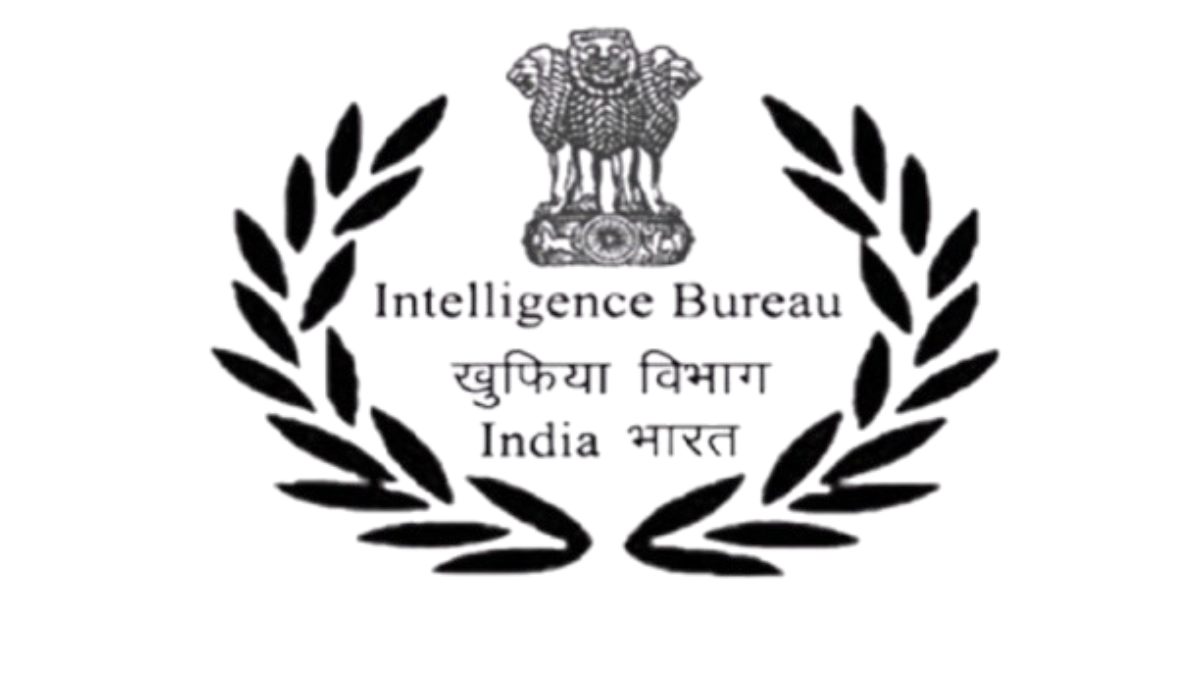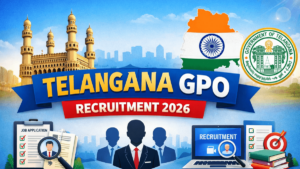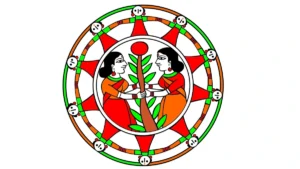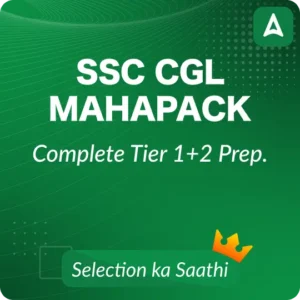The General Studies section in the Intelligence Bureau Assistant Central Intelligence Officer (IB ACIO) examination is known for its vast coverage, testing candidates on historical, political, geographical, economic, and static knowledge along with current schemes. An in-depth analysis of last year’s paper reveals that questions were strategically spread across various topics, ensuring that no single subject area dominated the section. This topic-wise analysis answers the question, “Which Topics Were Asked in General Studies in Last Year IB ACIO Exam?” by providing a detailed account of subject distribution. Below is a comprehensive breakdown of every topic asked in the General Studies portion of last year’s IB ACIO exam,
Which Topics Were Asked in General Studies in Last Year IB ACIO Exam?
The IB ACIO (Intelligence Bureau Assistant Central Intelligence Officer) examination tests candidates on a wide range of subjects under the General Studies section. Understanding the topic distribution from the previous year’s paper can help aspirants focus on the most important areas while preparing for the upcoming exam.
Ancient History
Ancient History contributed significantly, appearing in multiple shifts. Questions tested factual knowledge, cultural understanding, and historical timelines. The sub-topics included:
- Indus Valley Civilization – Questions often focused on sites, town planning, economy, and artefacts.
- Vedic Era – Covered both Early and Later Vedic periods, religious practices, and political systems.
- Buddhism – Multiple questions appeared in different shifts, focusing on teachings, councils, and important personalities like Buddha.
- Jainism – Covered founders, principles, sects, and historical spread.
- Mahajanapadas – Focused on the sixteen Mahajanapadas and their features.
- Mauryan Empire – Questions from rulers like Chandragupta Maurya and Ashoka, their policies, and administration.
- Post-Mauryan Period – Included Satavahanas, Kushanas, and Indo-Greek influences.
- Guptas – Questions on Gupta rulers, achievements, and contributions in literature and science (Kalidas was specifically mentioned).
Medieval History
Medieval History’s presence varied across shifts, but the following topics were tested:
- Arabs – Covered early Arab invasions and influence on India.
- Islam Religion – Questions on origin, spread, and major beliefs.
- Pre-Delhi Sultanate – Early medieval kingdoms before the Delhi Sultanate’s rise.
- Vijayanagar Empire – Focused on rulers, architecture, and administration.
- Delhi Sultanate – Questions on different dynasties, administrative structure, and cultural developments.
- Mughals – Included emperors, reforms, and cultural achievements.
- Later Mughals – Covered decline of the empire and regional powers.
Modern History
Modern History remained an important segment, particularly related to India’s freedom struggle and colonial period:
- Sikhs – Questions about Sikh Gurus and movements.
- Portuguese – Entry into India, settlements, and impact on trade.
- Colonial Architectures – Monuments built during British rule.
- East India Company – Initial trade relations, expansion, and administrative policies.
- Bengal – Historical events like the Battle of Plassey, Bengal Renaissance.
- Pre-Independence Era – Key events before the 20th century.
- Indian National Congress (INC) – Foundation, sessions, and resolutions.
- Gandhi Era – Movements such as Non-Cooperation, Civil Disobedience, and Quit India.
- Pre-Independence Personalities – Leaders and reformers beyond Gandhi and Nehru.
Polity
Polity questions tested constitutional knowledge, governance, and political systems:
- Political Parties – Major national and regional parties and their ideologies.
- Articles – Fundamental Rights, Directive Principles, and other constitutional articles.
- Schedule – Number and contents of various Schedules of the Indian Constitution.
- British Acts – Laws passed during the British era and their impact.
- Borrowed Features – Sources of India’s Constitution.
- Amendments – Important constitutional amendments and their provisions.
- Mix Statements – Assertion-Reason or combined factual questions.
- Lok Sabha / Rajya Sabha – Powers, composition, and functions.
- Committees – Parliamentary and other committees.
- Preamble – Philosophy and keywords of the Constitution.
- Commissions – Statutory and non-statutory commissions.
- Panchayati Raj – Structure, powers, and constitutional provisions.
- President & Prime Minister & Governor – Appointment, powers, and functions.
- Miscellaneous Polity – Questions from mixed or less common topics.
World and Physical Geography
World Geography questions checked conceptual knowledge as well as factual recall:
- Solar System – Planets, satellites, and astronomical facts.
- Planets – Features and unique characteristics of planets.
- Climate – Types, patterns, and climatic phenomena.
- Continents – Location, countries, and major physical features.
- Landforms – Mountains, plateaus, plains, and related processes.
- Ocean – Ocean currents, seas, and related phenomena.
- Physical Features – Natural geographical features and their distribution.
Indian Geography
Indian Geography had both physical and economic aspects:
- Himalayas – Ranges, peaks, and passes.
- Indian Climate – Monsoon, seasons, and climatic regions.
- Islands – Andaman & Nicobar, Lakshadweep.
- Rivers of India – Origin, tributaries, and projects.
- Ports – Major and minor ports of India.
- Soils in India – Types, distribution, and crops.
- Green Revolution – Agricultural transformation and its impact.
- Transportation – Modes and infrastructure.
- Census – Population statistics and related facts.
- Tribes in India – Major tribes and their regions.
- Minerals – Distribution and uses.
- Straits – Important straits in the world.
- Forest – Types, coverage, and conservation.
- Miscellaneous Topics – Mixed questions from lesser-known geographical facts.
Economy
Economy-related questions covered both static and current aspects:
- History of Economy – Economic systems and changes over time.
- RBI & Banking Sector – Functions and policies.
- Industries – Location and distribution of industries.
- Taxes – Types and related policies.
- Five-Year Plan – Objectives and outcomes.
- Sectors of Economy – Primary, secondary, and tertiary sectors.
- Reports & Indexes – National and international reports.
- Human Development Index (HDI) – Indicators and rankings.
- Trade Organisations – WTO, IMF, etc.
- Income – Concepts and measures.
- Securities – Financial instruments and regulations.
Static GK
Static GK had a steady presence:
- Miscellaneous Static GK – General facts and trivia.
- Personality – Notable individuals from different fields.
- Languages – Official and regional languages.
- Monuments – Historical and cultural landmarks.
- World Places – Geographical locations of importance.
- Highest and Longest – Records in geography and infrastructure.
Art and Culture
Art and Culture were an essential part of exam, with questions on:
-
Festival, Fairs, Temples and Monuments, Paintings and Miscellaneous
IB ACIO GA Analysis – Topic-wise Question Distribution
In the previous IB ACIO examination, the General Awareness section covered a diverse range of subjects, ensuring that candidates were tested on both static and dynamic knowledge. History and Polity carried the highest weightage with 5 questions each, making them crucial areas for preparation. Geography, Economy, and Static GK had moderate representation, while Art & Culture contributed a single question, reflecting the exam’s focus on balanced coverage across multiple disciplines.
| Topic | No. of Questions |
|---|---|
| Geography | 3 |
| History | 5 |
| Polity | 5 |
| Economy | 3 |
| Static GK | 3 |
| Art & Culture | 1 |
The General Studies section of the IB ACIO exam last year reflected a balanced distribution between static knowledge and current affairs. Repeated topics such as Indus Valley Civilization, Buddhism, Delhi Sultanate, Mughals, Articles of the Constitution, Rivers of India, HDI, and Government Schemes should be given top priority in preparation. However, aspirants should not neglect low-frequency topics like Straits, Portuguese presence, Panchayati Raj, or Tribes in India, as these can easily appear and make the difference in overall scores. A strategic study plan covering all these topics with equal attention to detail and revision will help aspirants perform confidently in the upcoming IB ACIO examination.
| Check Related Links | |
| IB ACIO Previous Year Papers | IB ACIO Syllabus and Exam Pattern |



 SSC MTS Admit Card 2026 OUT, Download MT...
SSC MTS Admit Card 2026 OUT, Download MT...
 Telangana GPO Recruitment 2026 Notificat...
Telangana GPO Recruitment 2026 Notificat...
 Bihar Jeevika Cut Off 2026, Check Catego...
Bihar Jeevika Cut Off 2026, Check Catego...




 Adda247 Job portal has complete information about all Sarkari Jobs and Naukri Alerts, its latest recruitment notifications, from all state and national level jobs and their updates.
Adda247 Job portal has complete information about all Sarkari Jobs and Naukri Alerts, its latest recruitment notifications, from all state and national level jobs and their updates.




